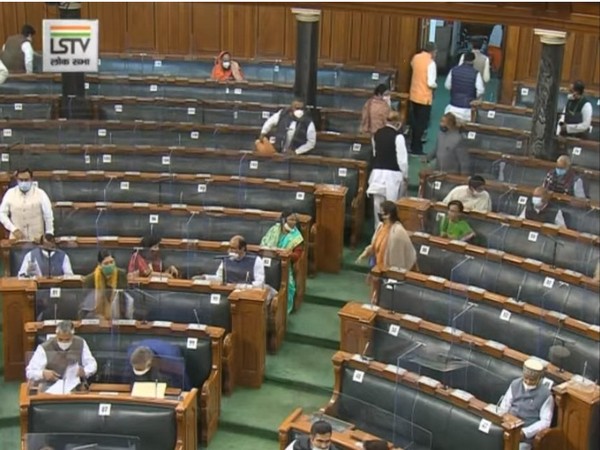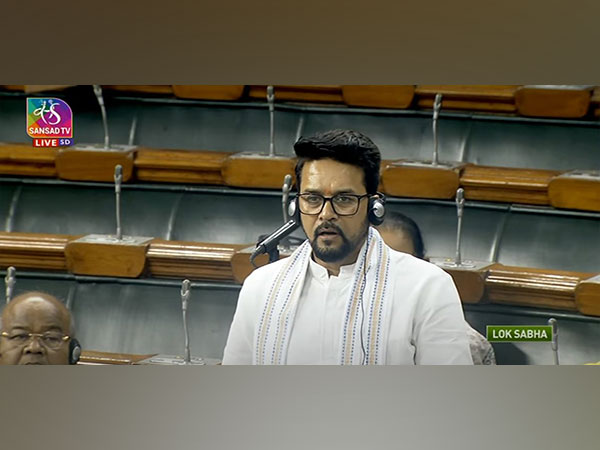Amid the continuing logjam in both Houses over the Manipur situation, the Parliament will reconvene on Tuesday with the contentious Government of National Capital Territory of Delhi (Amendment) Bill, 2023, over control of services in the national capital, likely to be introduced in the Lok Sabha by Union Home Minister Amit Shah.
The Government of National Capital Territory of Delhi (Amendment) Bill, 2023, seeks to replace the Ordinance brought by the Centre in May, excluding certain services from the legislative competence of the Delhi legislative assembly.
According to the Lok Sabha legislative business notification, the Bill on the Delhi services is listed for introduction in the Lower House on Tuesday.
The Union Home Minister will move for leave to introduce a Bill to amend the Government of National Capital Territory of Delhi Act, 1991, while also tabling the draft of the Bill for the consideration of the House.
Union Minister of State (Home) Nityanand Rai will also table an explanatory statement (Hindi and English versions) showing reasons for immediate legislation by the promulgation of the National Capital Territory of Delhi (Amendment) Ordinance, 2023.
Ahead of its introduction in the House, certain key changes have been made to the Bill.
The Bill is expected to see fresh fireworks from the Opposition in the Lower House, amid the ongoing impasse over the Manipur situation.
Delhi Chief Minister Arvind Kejriwal had personally called on top Opposition leaders, including West Bengal Chief Minister Mamata Banerjee and Nationalist Congress Party (NCP) stalwart Sharad Pawar, in a bid to solicit their support for the Centre’s Ordinance on the control of services in the national capital.
Opposition members from the Indian National Developmental Inclusive Alliance (I.N.D.I.A), including the Congress, have already cleared their stand over the Bill, saying they would oppose it as it will destroy the federal structure of governance.
Meanwhile, six bills are to be tabled in Rajya Sabha as per the listing of the legislative business in the House.
Union Minister of Law and Justice Arjun Ram Meghwal is to introduce the Advocates (Amendment) Bill, 2023 in the Rajya Sabha today to amend the Advocates Act, 1961.
Union Minister for Information and Broadcasting Anurag Thakur will introduce the Press and Registration of Periodicals Bill, 2023 in the Rajya Sabha to provide for press, registration of periodicals.
Union Minister of Law and Justice Arjun Ram Meghwal is to move the Mediation Bill, 2021 in the Rajya Sabha today for its consideration and passage to promote and facilitate mediation, especially institutional mediation, for the resolution of disputes, commercial or otherwise, enforce mediated settlement agreements, provide for a body for the registration of mediators, to encourage community mediation and to make online mediation as an acceptable and cost-effective process.
Amit Shah will also move the Multi-State Co-operative Societies (Amendment) Bill, 2023 in the Rajya Sabha today for its consideration and passage to amend the Multi-State Co-operative Societies Act, 2002. The Bill was earlier passed by the Lok Sabha.
Union Minister for Environment, Forest and Climate Change and Labour and Employment, Bhupendra Yadav, will move the Biological Diversity (Amendment) Bill, 2023 in the Rajya Sabha for its consideration and passage to amend the Biological Diversity Act, 2002. The Bill was earlier passed by Lok Sabha.
Yadav will also move the Forest (Conservation) Amendment Bill, 2023 in the Rajya Sabha for its consideration and passage to amend the Forest (Conservation) Act, 1980. The Bill was earlier passed by the Lok Sabha.
Meanwhile, on Tuesday, Aam Aami Party MP Raghav Chadha filed a suspension of business notice in Parliament to discuss the “breakdown of law and order in the state of Manipur”.
“I hereby give notice under Rule 267 of the Rules of Procedure and Conduct of Business in the Council of States (Rajya Sabha) of my intention to move the following motion for suspension of business listed for August 1, 2023, that this House do suspend Zero Hour and relevant rules relating to Question Hour and other business of the day to discuss the violence in Manipur which has resulted in loss of precious lives in Manipur due to failure and incompetence of Central & State Government,” read the notice filed by Chadha.
Since the start of the Monsoon Session on July 20, both Houses of Parliament have seen repeated disruptions and adjournments over the Manipur issue, with the combined Opposition adamant on a debate and statement from Prime Minister Narendra Modi.
The Opposition brought a no-confidence motion last week in a bid to compel PM Modi to speak on the Manipur issue in the Parliament. (ANI)
Read More: http://13.232.95.176/

